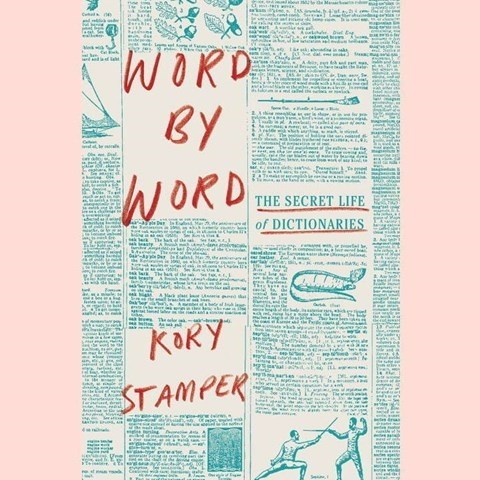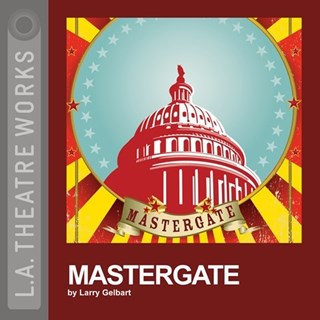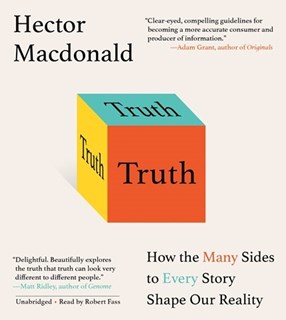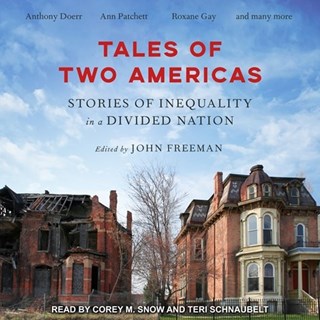 Regardless of individual political allegiance, Americans—and many in Europe, Asia, and Africa, too—are gaining new and more popular awareness of how words can be used to both contract and expand communication. Whether used as singular epithets or strung into carefully designed phrasing, words and the meanings they carry can persuade, enrage, comfort, and signal a lowering or heightening of tension. People who love to read know this as surely as do gossips and clergy crafting sermons. Adding the high-octane fuel of skilled performance of the written words guides listeners through pace, tone, and inflection to burn every spark of available meaning and potential nuance from the written word and bring it to the audiobook reader’s attention.
Regardless of individual political allegiance, Americans—and many in Europe, Asia, and Africa, too—are gaining new and more popular awareness of how words can be used to both contract and expand communication. Whether used as singular epithets or strung into carefully designed phrasing, words and the meanings they carry can persuade, enrage, comfort, and signal a lowering or heightening of tension. People who love to read know this as surely as do gossips and clergy crafting sermons. Adding the high-octane fuel of skilled performance of the written words guides listeners through pace, tone, and inflection to burn every spark of available meaning and potential nuance from the written word and bring it to the audiobook reader’s attention.
 Words like “civility” and “snowflake” represent different concepts today than they did two years ago. That makes this a good time to give a listen to some audiobooks that are meta-performances of the words and language that they use for propulsion. Starting with an author-read—and Earphones Award-winning—audiobook specifically about word documentation, we have the opportunity to be led by Kory Stamper’s WORD BY WORD through the processes, wonders, and insights that are all in a lexicographer’s working day.
Words like “civility” and “snowflake” represent different concepts today than they did two years ago. That makes this a good time to give a listen to some audiobooks that are meta-performances of the words and language that they use for propulsion. Starting with an author-read—and Earphones Award-winning—audiobook specifically about word documentation, we have the opportunity to be led by Kory Stamper’s WORD BY WORD through the processes, wonders, and insights that are all in a lexicographer’s working day.
In spite of what we learn from Stamper, we also know that some innate human reflex is truth-seeking, never mind how wobbly the logic, evidence, or completeness of the words we believe can be taken as mirroring truth accurately. Turning to TRUTH by Hector Macdonald and narrated by Robert Fass, we can spend time hearing a clear, if necessarily complex, discussion of how we can be appropriately critical when consuming versions of truth. Fass makes careful use of both pacing and emphasis to ensure that Macdonald’s examples are both sensible and in keeping with the author’s premise that truth itself is complex and yet possible to set as a goal. Hear more about Robert Fass’s perspective narrating this audiobook in his Behind the Mic video.
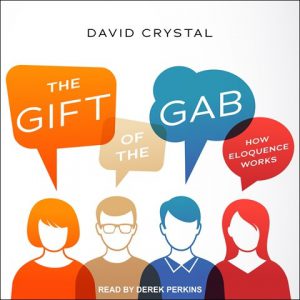 Beyond purposes of identification and prescription, words also can bear a heavy load of style and intentionality from the speaker or writer to their audience. Linguist David Crystal discusses how some personal styles of word use—particularly that which we call eloquence—both rely upon and go well beyond word choice alone. THE GIFT OF THE GAB: How Eloquence Works is demonstrated overtly by Derek Perkins as he performs both Crystal’s exegesis on eloquence and the passages he quotes from historical personages who are identified readily with being demonstrably eloquent.
Beyond purposes of identification and prescription, words also can bear a heavy load of style and intentionality from the speaker or writer to their audience. Linguist David Crystal discusses how some personal styles of word use—particularly that which we call eloquence—both rely upon and go well beyond word choice alone. THE GIFT OF THE GAB: How Eloquence Works is demonstrated overtly by Derek Perkins as he performs both Crystal’s exegesis on eloquence and the passages he quotes from historical personages who are identified readily with being demonstrably eloquent.
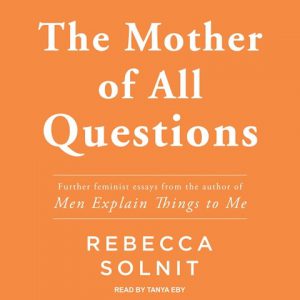 Words, truth, and eloquence also each receive metacritiques in collections by John Edgar Wideman and Rebecca Solnit. Here is a pair of audiobooks for those as besotted by verbal power and plasticity as any of the writers noted here. Tanya Eby’s Earphones Award-winning performance of THE MOTHER OF ALL QUESTIONS, by Rebecca Solnit, embodies the author’s implicit and dichotomous stances of anger and hope. Solnit’s feminist reasoning points up the truth of women having been silenced by gender roles and presumptions, while her critique of warning labels is served up by her as an example of ingenuous dismissal of both the shared male responsibility and interest in matters such as healthy pregnancies.
Words, truth, and eloquence also each receive metacritiques in collections by John Edgar Wideman and Rebecca Solnit. Here is a pair of audiobooks for those as besotted by verbal power and plasticity as any of the writers noted here. Tanya Eby’s Earphones Award-winning performance of THE MOTHER OF ALL QUESTIONS, by Rebecca Solnit, embodies the author’s implicit and dichotomous stances of anger and hope. Solnit’s feminist reasoning points up the truth of women having been silenced by gender roles and presumptions, while her critique of warning labels is served up by her as an example of ingenuous dismissal of both the shared male responsibility and interest in matters such as healthy pregnancies.
 Wideman’s new collection of essays masquerading as stories (or stories masquerading as essays, or writing that goes beyond allowing such a distinction to be clear), AMERICAN HISTORIES, also toes that metalinguistic line that makes the audience think hard about whether words carry truth or the audience creates truth from what is said by another. Dion Graham‘s Earphones Award-winning performance of this very full serving of reflection, fact-finding, and some pure linguistic fun lives up to the agility necessary to deliver its word-powered variety of rhythms, alliteration, repetition, and even onomatopoeia.
Wideman’s new collection of essays masquerading as stories (or stories masquerading as essays, or writing that goes beyond allowing such a distinction to be clear), AMERICAN HISTORIES, also toes that metalinguistic line that makes the audience think hard about whether words carry truth or the audience creates truth from what is said by another. Dion Graham‘s Earphones Award-winning performance of this very full serving of reflection, fact-finding, and some pure linguistic fun lives up to the agility necessary to deliver its word-powered variety of rhythms, alliteration, repetition, and even onomatopoeia.
In a time when words are increasingly both weaponized and disparaged as barriers to some other idea of truth, this little shelf of audiobooks can keep us alert and engaged with our own capacities to understand what we cannot have experienced directly.


